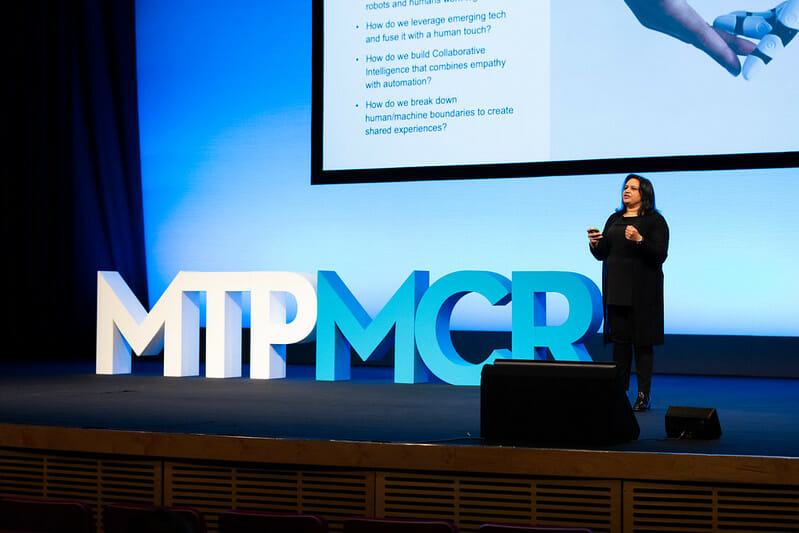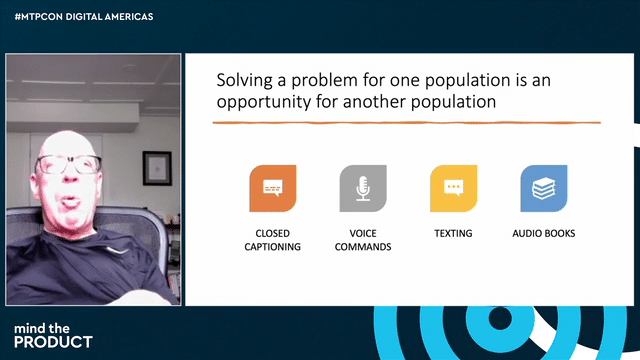We catch up with Randeep Sidhu, former Head of Product for the NHS Covid 19 app, to find out what he’s doing now and how he succeeds in companies that have little to no knowledge of product management.
If you came to #mtpcon London a couple of years ago you’ll remember Randeep Sidhu: his keynote about the pressures of getting the second NHS Covid test and trace app up and running after the first app was withdrawn was one of the standout talks of the conference.
Randeep is just coming to the end of a stint as Chief Product Officer at Reliance Health, a Nigerian-founded startup focused on making high-quality healthcare affordable in the developing world. He was Director of Product at digital health services provider Babylon Health and developed healthtech in Rwanda prior to his stint at the NHS.
During the last 12 months Randeep has helped Reliance Health to expand its services beyond Nigeria to Egypt. He explains: “I wanted to take some of the learnings from the NHS and from Babylon, and apply them somewhere where there would be real impact.” Now he feels it’s time for him to move on: “I’ve done what I wanted to do there. I’ve added the value I came to add, I’ve created structure and processes and trained a lot of product managers.”
Randeep cut his teeth in product at a games company and got interested in working in healthtech when he joined the board of the Terrence Higgins Trust, a UK HIV charity. Healthcare is a sector full of opportunities for innovation and his commitment to making healthcare affordable and accessible to everyone is sincere. As he says: “Anything in healthcare is going to be helping people, so it’s motivating.”
Lack of diversity
Lack of diversity continues to be a problem for tech businesses, but in healthtech the problem is critical. Healthtech needs people from diverse backgrounds to “sit at the table”, because it needs to be universal and work for everyone, Randeep explains. He says: “My background means I feel I can add value here, but my background is also diverse, because I’m gay and I’m brown.”
His background played a crucial role in the development of the second – successful – NHS Covid app. Plenty of talented engineers had worked on the first app, but there was a lack of clarity and consensus on what a Covid19 app should do. It became a scientific tool rather than an app that more simply informed people about their exposure to the virus. Randeep focused on ensuring the app would work for users with low literacy or limited access to technology. He made sure he had a diverse team, with diverse thinking and diverse points of view. They built the app in 12 languages and did lots of testing for people with disabilities and neuro-diverse conditions. They took it to pilot stage in five weeks and rolled it out nationally six weeks later.
Product in healthcare
Product practice in healthtech is different. The medical profession is rightly cautious: you can’t “build fast and break things” because you might kill someone. As Randeep says, you have to build for today’s reality and bet on the future. The NHS Covid app – which is being decommissioned this month – had to be built on this basis and has saved a minimum of 10,000 lives: “We did things fast and we were nimble. But we always had to think ‘what if something goes wrong, who’s going to step in? Who do they call?’.”
His advice is always to respect the knowledge of medical professionals, but to try to get them to think differently about the areas they’ve trained in. Some product techniques are quite challenging for doctors, Randeep says: “Workshops that challenge assumptions, A/B testing and the like aren’t appropriate because a doctor will always think about how to minimise risk.”
Dealing with big dogs
Randeep has also learned that it pays to present product management differently in healthtech. His advice here is germane to any product manager in a company where there’s little knowledge of product management or somewhere where the HiPPOs don’t understand the value of their work.
He says that a reluctance to do discovery is the most common problem in organisations where there is no knowledge of product management. “People will say to you, ‘it’s not worth researching, I know the answer. Why are you asking customers?’.”
Another common problem is that people want to build for what Randeep calls “a magical future”. They want to build a product that’s appropriate for a venture capital-backed multimillion dollar business. “That’s a product for 10 years’ time maybe,” says Randeep, “and you know that what you need is to build something for today.”
His advice is to think about what a senior audience wants and talk about finance rather than product. And he drops the product jargon. “With investors and CEOs, I always talk money, that’s the way to get through to them. I don’t talk about product visions and the rest of it.”
When dealing with ideas from senior people, Randeep will always tell them that their ideas are interesting but then go on to show them the penalties that come with implementing their ideas.
“I make sure that they’re aware of the cost and the opportunity cost of any features they feel the need to add. I usually add five or 10% of the build costs as an annual recurring monthly fee, a tax if you like. Then I can reshape our roadmap and point out how that tax prevents us from doing other things on the roadmap.”
Another trick Randeep uses to counteract poor senior-level decision making is to open up ideas to a wider audience. “The best way, particularly in medicine, is to open up ideas to a forum of senior people. Sunlight is the best disinfectant – the more people that see bad decision making happen the better. Then you’re not the only one fighting, you’ve got allies to help you stop it.”
Build versus buy
Randeep also hears a lot of build versus buy conversations at a senior level, even now. He finds there’s still a lot of enthusiasm for building products when plug-ins or customising existing add-ons would serve the business better. “In these situations you have to ask questions like ‘is a venture capitalist going to spend money on this? Is it going to be good enough for someone to buy?’If it’s a healthcare company building a CRM, no one will care that you’ve built it. A VC won’t buy your CRM, they’ll buy your medical data,” he says.
Going forward, Randeep sits on the board of a queer and trans digital sexual health clinic, Lvndr Health, and is looking forward to being more involved in its day-to-day running. The organisation is having to develop its medical record system that will then plug in to existing medical records because most existing healthcare records can’t deal with trans patients. Randeep explains: “If you’re trans male, for example, you still need smear tests, but existing systems can’t code for that.”
He’ll also continue to coach and mentor product people: “There are lots of product coaches out there, so I focus on health tech and AI. I coach people who need support from a more senior person to identify gaps in their personal strengths so that they can get to the next level.”
Watch Randeep’s #mtpcon talk From pandemic to pingdemic – Building through uncertainty








Comments
Join the community
Sign up for free to share your thoughts